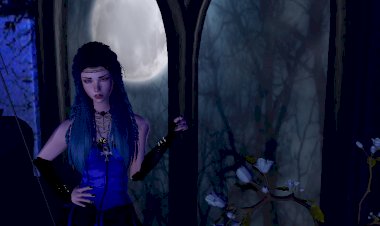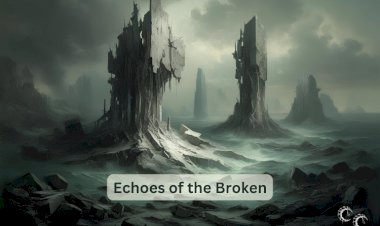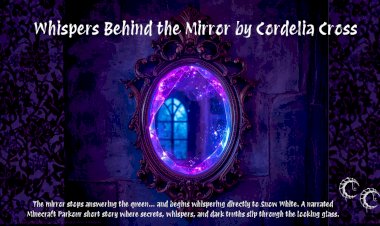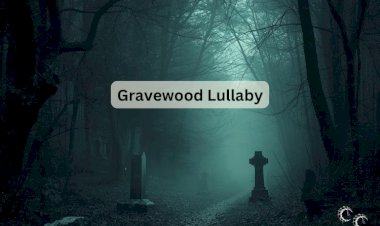The Clockmaker's Apprentice
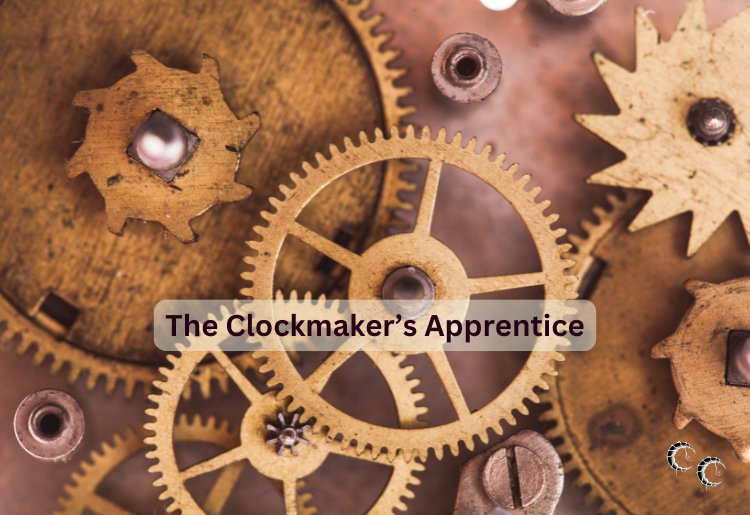
Eliot had always been fascinated by clocks. From the first time his small hands touched the polished wood of a pocket watch, he had been entranced by the way time ticked away, minute by minute, second by second. His fascination turned into a passion, and by the age of fifteen, he had become an apprentice to the best clockmaker in the village, Old Thomas. Thomas’s workshop was a place where the rhythm of the world itself seemed to hum, with clocks of all shapes and sizes lining the shelves, each one with its own story to tell. The ticking was almost musical, and Eliot had learned to hear the unique beat of each timepiece.
But there was one clock in the workshop that Old Thomas never allowed Eliot to touch. It stood in the far corner, its brass frame tarnished with age, its face covered in dust. It was an enormous clock, taller than a man, with delicate carvings of stars and moons swirling around its edges. Its hands were frozen at midnight. The strange thing about the clock wasn’t just its size or its intricate design—it was the way it seemed to watch you.
“I’ll fix it someday,” Old Thomas would mutter whenever Eliot asked about it. “But not today.”
Eliot had always respected the old man’s wishes. After all, Thomas had taught him everything he knew. The art of repairing gears, polishing the cases, and tuning the delicate springs inside the heart of each clock. But as the years passed, curiosity grew in Eliot’s chest. What could possibly be so special about that clock that Old Thomas kept it hidden away?
One fateful evening, Old Thomas left the shop earlier than usual. Eliot had been cleaning the workbench when he saw the old man’s coat disappearing down the lane. The shop was eerily quiet, the usual ticking symphony silent for once. Eliot’s heart beat faster. This was his chance.
He crossed the room, his hands trembling with excitement, and reached out to touch the frozen hands of the giant clock. The moment his fingers brushed the cold brass, something shivered in the air. The silence was suddenly shattered by the sound of a deep, resonant chime, far louder than any of the other clocks in the shop. It was as though the very walls were vibrating. Eliot stepped back, startled, but the clock continued to tick—slowly at first, then quicker. The hands began to move, turning forward, but then, instead of following their normal path, they began to spin erratically, faster and faster, as if the clock had a mind of its own.
Eliot’s breath caught in his throat. He reached out again, this time trying to stop the hands, but as soon as his fingers touched them, the world around him seemed to blur.
A sudden flash of light blinded him. He stumbled, his body losing its footing, and then everything went dark.
When he opened his eyes, Eliot found himself lying on the cold stone floor of the workshop. But something was terribly wrong. The clocks were all silent now—no ticking, no chiming, no rhythm. It was as if time had frozen, and the world had slipped into a strange stillness. He sat up, looking around, and realized that the shop was different. The walls were no longer lined with shelves and clocks. Instead, they were covered with intricate maps—maps of places he didn’t recognize, filled with foreign symbols he couldn’t read.
Confused and disoriented, Eliot stood and looked out the window. The sky was a strange shade of purple, with clouds swirling in patterns he had never seen before. The streets outside were empty, devoid of the usual bustle. It was as though the entire village had vanished.
He stumbled outside, his mind racing. What had happened? Was he dreaming? He rushed down the empty streets, searching for someone, anyone, who might explain what was going on. But there was no one.
Eliot found himself drawn to the village square. At the center of the square stood an enormous clock tower, far larger than any clock he had ever seen. The clock on the tower was ticking, but it was out of sync, its hands moving erratically, jumping from hour to hour, minute to minute, as if it couldn’t decide what time it was.
Suddenly, a voice echoed behind him. “You’ve done it now.”
Eliot spun around to see a tall, shadowy figure standing in the archway of a nearby building. The figure was cloaked in a dark robe, its face hidden beneath a hood. But there was something familiar about it, something he couldn’t quite place.
“Who are you?” Eliot demanded, his voice shaky. “Where am I? What’s going on?”
The figure stepped closer, its presence suffocating the air. “You’ve meddled with something that was never meant to be touched,” the figure said, its voice low and cold. “The clock you repaired—it was never meant to be fixed. You’ve broken the balance. Time itself is fractured.”
Eliot felt a chill run down his spine. “What do you mean? I didn’t mean to—”
“You’ve opened a doorway,” the figure interrupted. “A doorway to a place where time doesn’t flow the way it should. And now you must fix it, or everything will unravel.”
Eliot’s mind raced. “But how? How do I fix it?”
The figure raised its hand, revealing a small, intricately carved key. “This,” it said, “is the key to the heart of the clock. Find it, and you may be able to reset the flow of time. But beware. Time is not forgiving. And you have already altered the past. There are consequences.”
With that, the figure vanished into the shadows, leaving Eliot alone in the square. The clock tower loomed above him, its hands spinning wildly, ticking faster and faster, each passing second a reminder that he had broken something irreparably.
Eliot knew one thing for certain: he had to find the key. He didn’t know what awaited him, but he couldn’t leave this fractured world the way it was. It was up to him to restore balance, to set time right. But as he stepped toward the looming tower, he couldn’t shake the feeling that whatever lay ahead would cost him more than he was prepared to give.
He didn’t know it yet, but the true test of time had only just begun.








